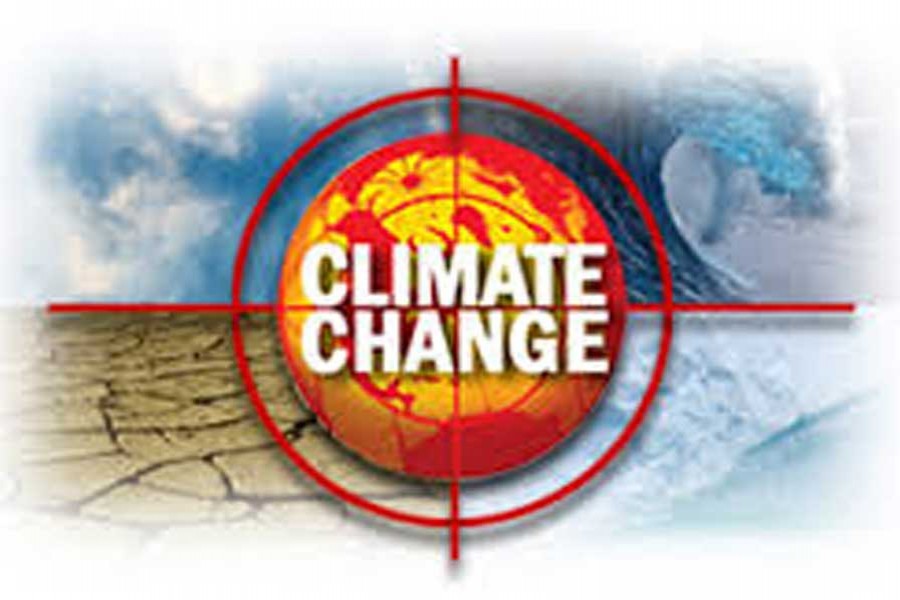The 2019 United Nations Climate Change Conference (COP 25) is scheduled be held in the Spanish capital Madrid on December 2-13, 2019. The Conference of the Parties (COP) within the framework of the United Nations Framework Convention (UNFCCC) is a collective response of the international community to climate change. It is an Agreement of 196 countries and the European Union (EU) that establishes the basic obligations to stabilise greenhouse gas (GHG) concentrations in the atmosphere at a level that will prevent climate change. COP is the important annual international forum for taking stock of where the world stands as regards climate change and to discuss issues related to global warming caused by human activities.
The COP 25 is expected to gather 25,000 people including heads of governments and states, politicians, academia, researchers, bureaucrats, activists, observers etc. Last year in Katowice, Poland more than 20,000 people attended the COP 24. The COP 25 is targeting to resolve some of the remaining issues on the rules that the participating countries (parties) are to follow in their efforts to reduce GHG emissions. The meeting may announce new initiatives to respond to global warming to try to advance a global strategy for tackling rising global atmospheric temperatures. Also, COP 25 is expected to reach a consensus on funding for repairing damage of the climate crisis. The funding issue is especially important for the climate vulnerable, least developed and the small island nations. The landmark Paris Climate Change Agreement (signed in 2015) is scheduled to enter into force in 2020. Therefore, COP 25 becomes the prelude to the major world event and a lot of expectations have been created.
In the backdrop of the increasing natural disasters and dwindling bio-diversity, the mainstream political parties in most countries have been compelled to respond on 'unequivocal' public concerns over climate change and human sufferings from global warming. The latest example is the UK election manifesto of the major political parties participating in the election where they have supported a transition to net zero GHG emission within a few decades and are competing with each other on the policies to attain the target. Despite the 'Brexit' debates hanging over the country, UK members of parliament (House of Commons) have unanimously passed (on April 30, 2019) a motion to declare an 'environmental and climate emergency'. Labour Party leader Jeremy Corbin, then leader of the opposition in parliament, tabled the motion and the House of Commons passed the bill. Earlier, parliaments of Scotland and Wales declared climate emergencies. Analysts consider that the approved nonbinding climate emergency motion in UK parliament was reached unanimously because thousands of people took to the streets for a sustained period of protests by a number of environmental groups, UK Student Climate Network, Friends of Earth and others including the school strikers led by Greta Thunberg.
Bangladesh Jatiya Sangsad (Parliament) adopted a motion on November 13, 2019 declaring climate change and its fallout as 'planetary emergency'. The planetary emergency motion ahead of the upcoming COP 25 calls for the global community to act urgently and decisively in achieving the net zero (carbon) emissions well before 2050.
Prime Minister Sheikh Hasina is scheduled to attend COP 25 which would be a good forum to present the 'planetary emergency' resolution adopted in Bangladesh Jatiya Sangsad and share views with the world community on how best the emergency can be addressed. The COP 25 forum may serve as an opportunity to discuss the issues related to 'planetary emergency' and help formulate plans and get support from the global community on implementing such plans. As Bangladesh is one of the most vulnerable hotspots for global climate change, it expects the global community to act urgently, decisively and with considerably higher ambition in achieving net zero emission well before 2050, capping temperature rise to 1.5 degree Celsius. Despite being least responsible for these problems, Bangladesh and many other countries in the developing world became the worst victims of climate change.
The planetary emergency connects with the existential crisis of climate change, devastating impact of disasters and increase in extreme weather events, irreparable loss of biodiversity, looming food insecurity, rising water level, unprecedented pressure on oceans and unsustainable use of resources. The resolution calls for planetary justice and climate equity so that the climate vulnerable countries are assisted with finance and technology to meet their development aspirations in the shortest possible time.
Mushfiqur Rahman is a mining engineer and writes on energy and environment issues.


